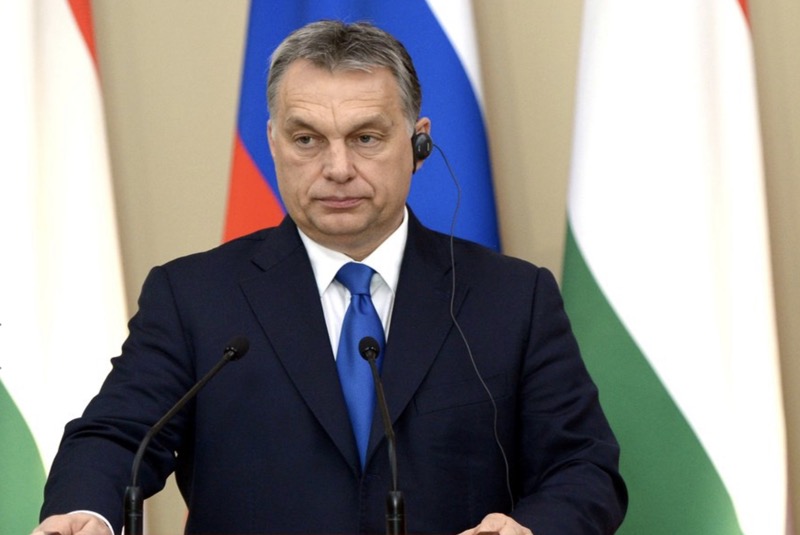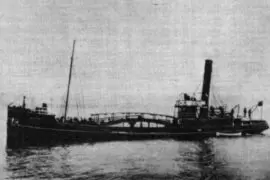Hungarian prime minister, Victor Orban, threw a major tantrum at the European Council meeting in Brussels on December 14 2023. Essentially doing the Russian president Vladimir Putin’s bidding, he prevented agreement on a major €50 billion (£25.7 billion) financial package for Ukraine.
His only concession was to abstain from a vote that delivered the long-awaited approval of opening accession talks with Ukraine. Though symbolically important, this does not address some of the key problems that Ukraine is facing as Russia’s full-scale war of aggression is about to enter its third year.
Symbolically, the commitment to open accession negotiations with Kyiv is an important boost for Ukraine’s embattled president Volodymyr Zelensky. It affirms the overwhelming support of EU member states for the country’s European future at a time when backing for Ukraine’s war effort appears to be weakening. But it is just that – a gesture of enormous political symbolism, but without any immediate practical consequences.
That said, if the European Council had not delivered on this expectation, the damage would have been significant. It would have been the second time this year that Ukraine’s aspirations for firm integration into western structures would have been delivered a blow after the Nato leaders at their summit in Vilnius in July merely confirmed that they “will be in a position to extend an invitation to Ukraine to join the Alliance when Allies agree and conditions are met”.
The wording of this Nato statement also casts another shadow on the enthusiasm that Zelensky displayed after the announcement of the European Council’s decision to open accession talks. These negotiations are likely to last probably more than a decade. And once they conclude, EU member states at that time will still have to consent to admitting Ukraine, and for some this will require not only a parliamentary vote but also a referendum decision.
Less symbolic, and potentially more damaging, is the failure of the European Council to offer Ukraine a long-term and substantial financial aid package. Orban’s exercise of his veto power in this instance really matters. According to a recent IMF report, Ukraine’s economy shrank by almost 30% in 2022, but is predicted to grow by 4.5% in 2023.
Still, the country has an enormous and growing budget deficit, and its economy teeters on the brink of collapse. Without EU macro-financial assistance, this poses an immediate and acute threat to Ukraine – in term of its ability to sustain its defence against Russian aggression and to maintain and repair the infrastructure that is critical to maintaining military efforts, economic activity and social services.
Without this, Ukraine is also likely to lose more of its people to emigration and will not succeed in encouraging more refugees to return, worsening an already apparent brain and skills drain that will also hamper the country’s long-term recovery prospects.
The clear winner in all of this, for now at least, is Russia’s president, Vladimir Putin. Weakening of western commitmentsis likely to tip the balance further to Russia’s advantage. Ukraine’s problems, at the moment, are not grave enough to assure Russia of a military victory and achieving all its repeatedly stated war aims. But they are grave enough to cast serious doubt on Ukraine’s ability to deliver a complete liberation of all its territories from illegal Russian occupation.
What next?
As the mismatch between Ukrainian rhetoric and capability – diminished by declining western support – becomes more obvious, Putin will be further buoyed and become even more entrenched in his demands for annexing all four of the Ukrainian regions that Russia, for now, only partially occupies, and for retaining Crimea.
In this sense, there is also an important element of symbolism to the EU’s failure to deliver on the expectation of a much-needed financial aid package to Ukraine. After the United States, it now seems that Ukraine’s other major ally, the EU, is no longer willing to put its money where its mouth is. Critically, this is not a question of a lack of financial resources but of an inability, or unwillingness, to spend them.
In the US, this is mostly an issue of domestic politics. In the EU, it is a question of the decision-making process itself and the outsized power that individual member states have to wield a veto. In the case of Orbán, it also raises questions of how far the Kremlin’s influence reaches into the heart of Europe.
As ever, this is not the end of the story. EU leaders will pick up their discussions on the budget again in January. Failing a successful outcome, they are likely to find a work-around and allocate funds to Ukraine on an annual basis. This will take more time to set up and thus prolong and increase uncertainty in Ukraine. Ultimately, however, it will show the limits of Putin’s reach and the power that Orban, and potentially others in the future, can exercise on his behalf.
But, in the short term, the outcomes of this particular European Council are more of a win for Putin than for Zelensky. In the medium to long term, Brussels will, most likely, muddle through as it always does and at the end of the day, the EU and Ukraine will be better off for it.
This story was first published in The Conversation.
Copyright©Madras Courier, All Rights Reserved. You may share using our article tools. Please don't cut articles from madrascourier.com and redistribute by email, post to the web, mobile phone or social media.Please send in your feed back and comments to [email protected]











